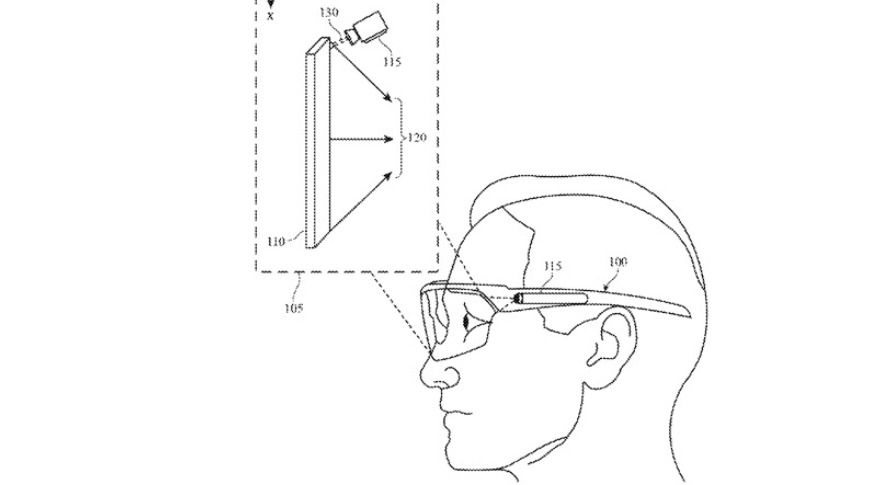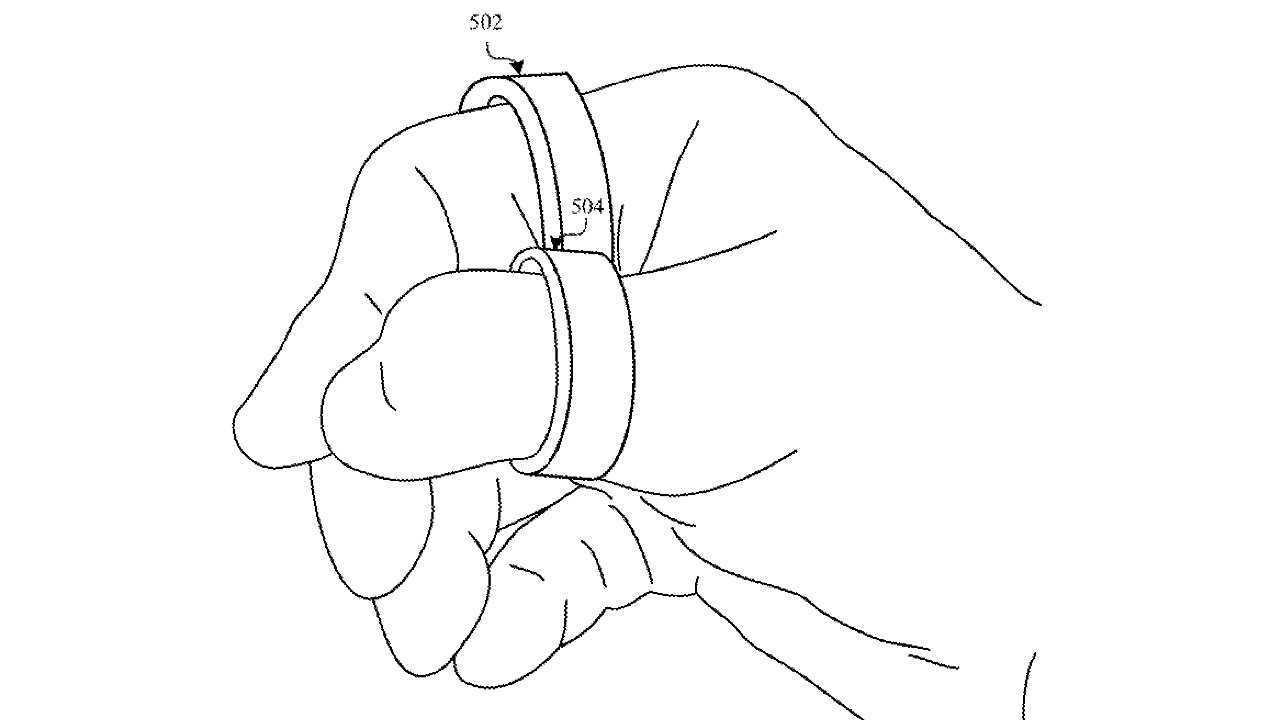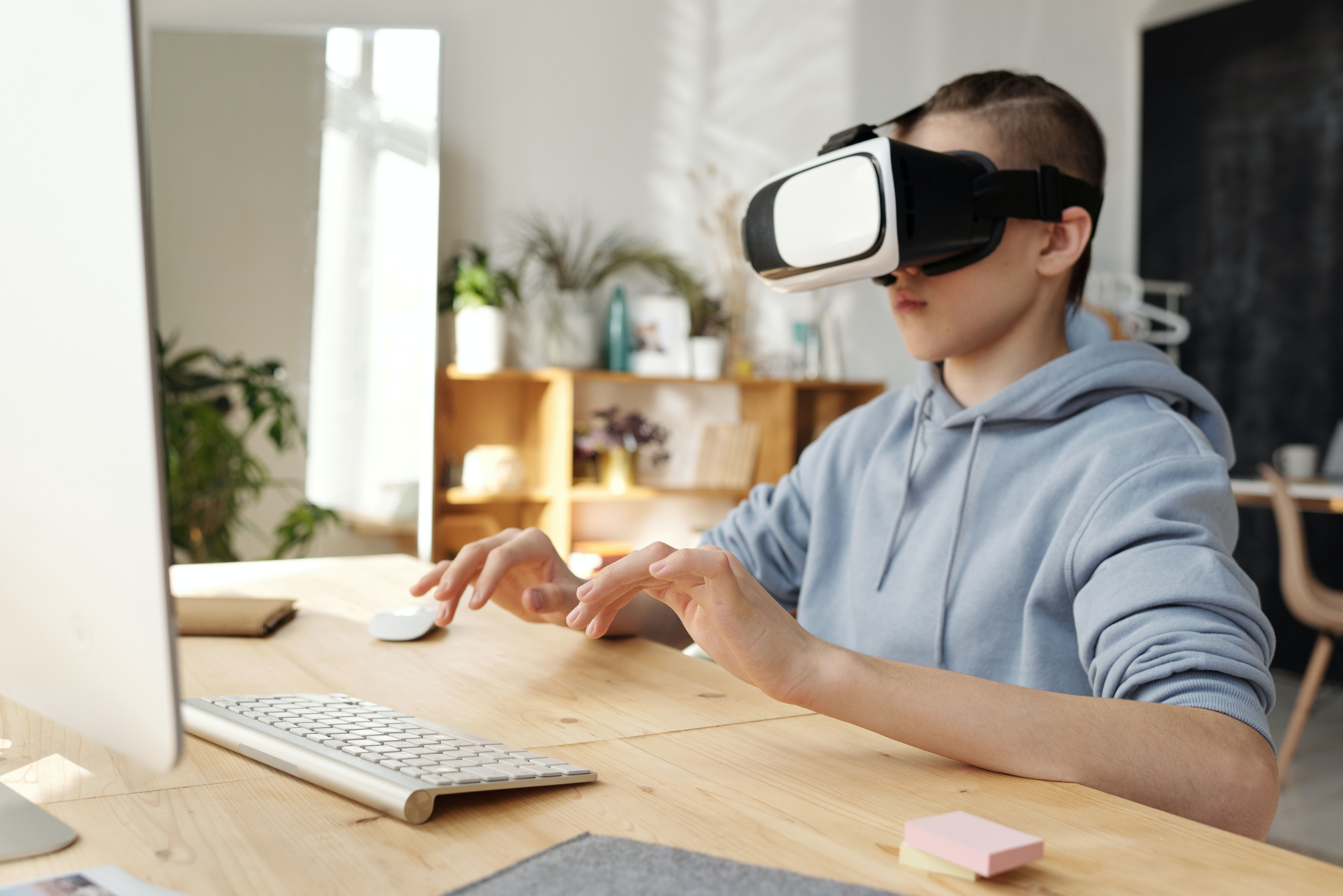Apple is thought to be developing augmented reality glasses known as "Apple Glass." However, the glasses are in an early development stage, so little is known about what they will bring to the table. Most of the speculation surrounding the glasses comes from recent patents filed by Apple.
So what is Apple Glass? In this article, we'll cover everything that's been leaked about Apple's new smart glasses, including their rumored design, capabilities, and cost.
What Is Apple Glass and What Will It Do?
So far, smart glasses have generally functioned as standalone devices. It is rumored that the Apple Glass will primarily act as an iPhone accessory, leveraging the iPhone's computational power to provide an augmented reality (AR) experience. In this way, it will bring information from your phone directly to your eyes. This will include functions such as text, email, applications (like maps), virtual meeting rooms, 360-degree video playback, and games.
Apple Glass will likely connect to the iPhone via a dedicated WiFi connection to match the bandwidth necessary to transmit 3D imagery and video at a sufficient frame rate.
One Apple Glass patent suggests that users will be able to access the Apple maps Look Around feature (similar to Google's Street View) in immersive AR. They may also be able to grant some kind of night vision using depth sensors.
Apple Glass Design
Allegedly, the prototype design of the Apple Glass resembles an ordinary pair of plastic glasses. Because Apple Glass is likely an iPhone accessory, it should be much more lightweight than AR glasses that contain bulky processors, cameras, and other devices. Patents show the Apple Glass resembling safety glasses, but this is unlikely to be the final design.
When it comes to style, color, lens shape, and customizability, little is known.
Due to a patent filed in 2020, it is also rumored that the Apple Glass may come with swappable arms that feature different functionalities.
Will Apple Glass Use glassOS?
Apple Glass is expected to run on a proprietary operating system known as Starboard (though it could also be glassOS) which includes an augmented reality framework.
When it comes to battery life, there's been no specific information leaked. However, looking at competitor products, Apple Glass will likely have a battery life of at least three hours and maybe up to an entire day. It may also feature a wireless charging case or platform as with Apple AirPods. Considering the glasses will offload much of the processing work to the user's iPhone, we can expect higher battery life than competitors that perform the processing in-device.
Camera
Supposedly, the Apple Glass will have a LIDAR sensor on the right temple. Right now, it seems like the Glass will have no other camera. This decision is thought to address privacy concerns that smart glasses have brought up. Although, another Apple patent suggests that the Glass may have a detachable camera module. This means the wearer could take the camera off in places where filming is illegal or unethical.
Interestingly, the Apple Glass may be able to identify nearby sounds. The patent is called "Audio-Based Feedback for Head-Mountable Device" and may provide capabilities similar to sonar.
Screen and Interface
The Apple Glass will likely feature Sony OLED microdisplays. These have an ultra-fast response rate, high contrast, wide color capabilities, low reflection, and a thin, light design. Supposedly, Apple Glass will feature a 0.5-inch wide display with a resolution of 1280x960 pixels. The field of view will likely be 52-degrees at minimum.
How the Apple Glass will be controlled is uncertain. Apple has various patents for touch panels, voice activation, and hand gesture control mechanisms. For instance, one patent shows rings that a user can wear. The rings track finger and hand movements as a method of command input to the Apple Glass.
One interesting possibility is that Apple Glass wearers won't require prescription lenses because of a vision correction system that can automatically adjust for those who usually require seeing glasses.
Privacy Concerns
When Google Glass was originally released, it faced a lot of backlash about the camera always recording—including wearers being banned from movie theatres.
A new patent filed by Apple suggests that the Apple Glass camera may be included as a removable module, supposedly as a means to combat privacy concerns. Another patent takes a look at potential mechanisms to alert bystanders to the fact that it's recording.
An alternative method describes a flashing light on an external camera to show bystanders whether the camera is recording. In addition, apple is exploring several methods of ensuring that an attached camera can be turned off or obvious to people to address privacy concerns.
Apple is obviously taking the time to consider several alternatives for camera-related privacy concerns.
Another concern is that others will be able to peek into your glasses and read what is being displayed. How Apple is going to address this is as yet unknown.
Apple Glass Price and Release Date
Apple analyst Ming-Chi Kuo believes that Apple Glass will see a 2022 release. However, previously, various commentators believed they would be released in 2021—so it isn't certain. Apple has released no information about when the Glass will be released, and speculation suggests that it might be several years before we see them on the market.
Jon Prosser, a well-known Apple leaker, thinks that Apple Glass will be priced at $499 and incorporate prescription fees for lenses. If this is true, it's a very accessible and competitive price point. To give some context, other smart glasses range from $799 (the Vuzix Blade) to over $3,000 (the Hololens 2). Even the Razer Anzu Smart Glasses are $199, and these just provide audio and eye protection.
Apple is Taking On the VR Market
Apple is upping its game when it comes to AR and VR products. Alongside Apple Glass (and expected to release much earlier) is Apple's upcoming VR headset.
There is a lot of speculation. Not very much is solidly known about Apple Glass. For these smart glasses to be successful where their predecessors haven't been, they will have to bring much more to the table in terms of functionality while at the same time addressing the myriad privacy concerns.




